AMD reveals Ryzen Pro 4000 CPUs for business laptops — Intel is in trouble
Lenovo and HP are set to launch business laptops with Ryzen Pro 4000 CPUs
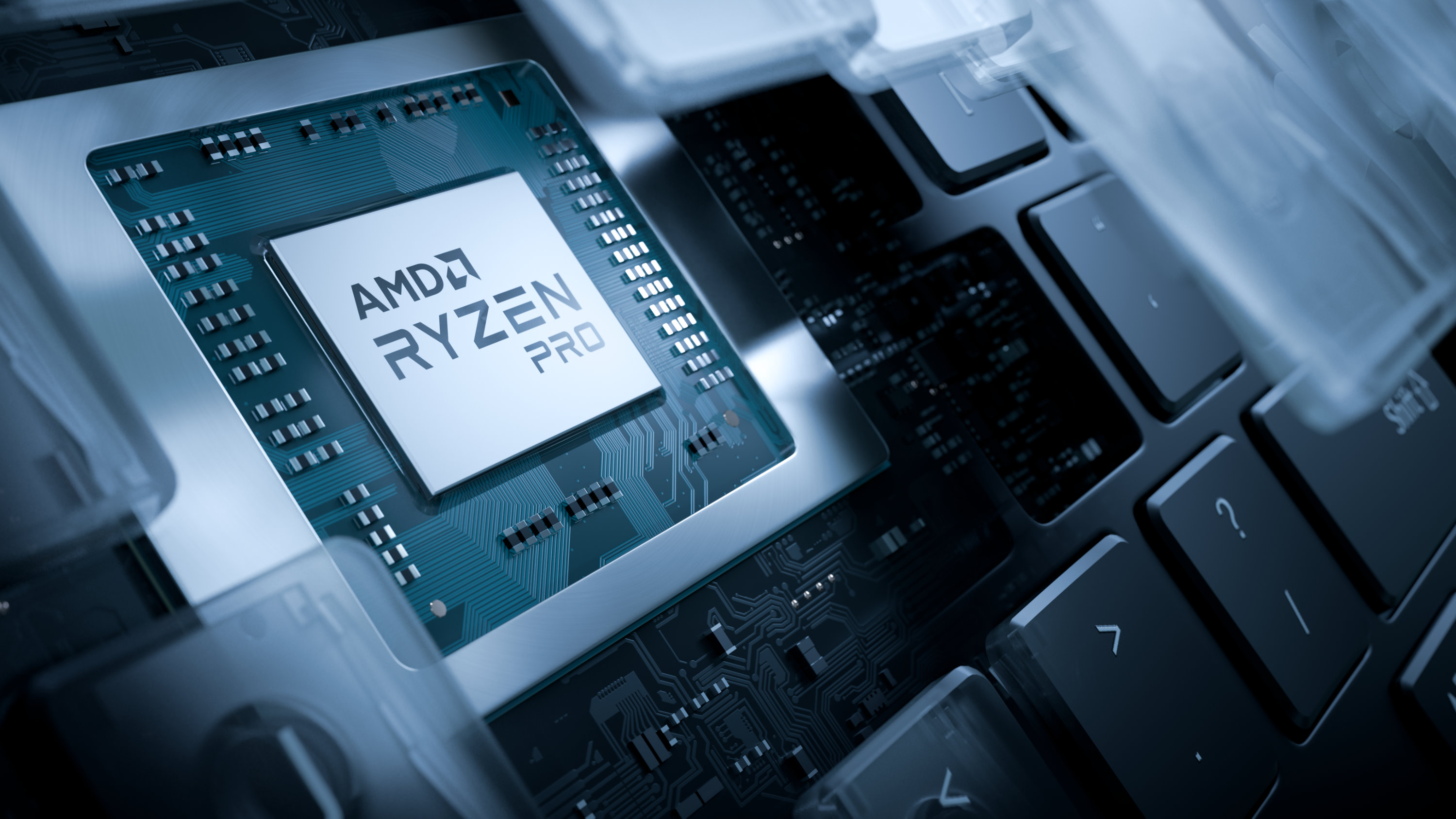
AMD doesn't just want a slice of the microprocessor market share, it wants the entire pie. Having already released its 4000-series Ryzen chips, AMD unveiled today Ryzen Pro 4000 series CPUs, a series of processors designed for business users. These are direct competitors to Intel vPro and AMD isn't pulling any punches.
The new 7-nanometer processors operate at a TDP of 15W, which means they are equivalent to Intel's U-series processors and meant for ultra-slim business notebooks.
- Best Business Laptops in 2020
- Asus ROG Zephyrus G14 (with Ryzen 4000) review
- Best video conferencing apps and software
At the top of the stack is the AMD Ryzen 7 Pro 4750U, an 8-core, 16-thread processor with a maximum frequency of 4.1GHz. There is also a 6-core Ryzen 5 Pro 4650U CPU (2.1Ghz base, up to 4.0Ghz) and a Ryzen 3 Pro 4450U (2.5GHz base, up to 3.5Ghz) processor for those who don't need to run the most demanding tasks.
Let's toss the numbers aside for a second and ask the question on every IT admin or enterprise user's mind: How does Ryzen Pro 4000 compare to Intel vPro and 10th Gen Intel CPUs? We won't know for sure until we test business notebooks running on these chips, but the numbers AMD is throwing around look encouraging.
AMD Ryzen 7 Pro 4750U vs Intel Core i7-10710U
AMD wasn't shy about putting its business-focused chips up against Intel's new 10th Gen processors. I want to pause for a second to remind you that Intel hasn't yet released 10th Gen vPro CPUs for enterprise notebooks, so this isn't a perfect apples-to-apples comparison.
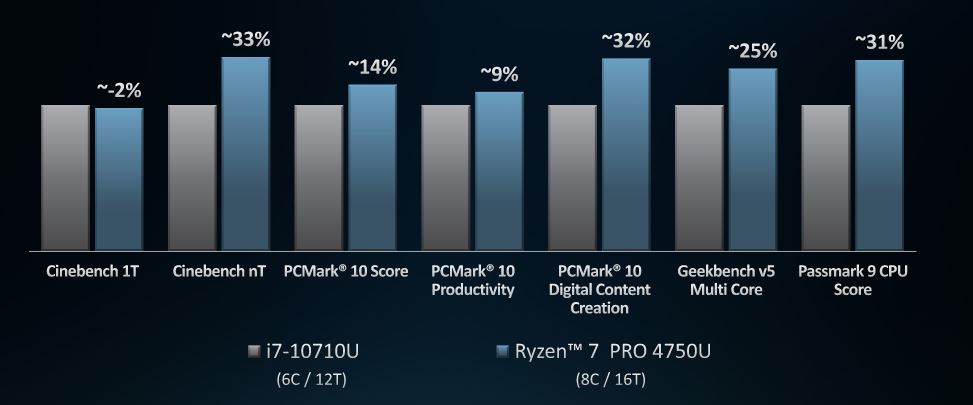
Still, AMD didn't cut corners with the comparisons it provided us. It put the Ryzen 7 Pro 4750U against an Intel Core i7-10710U processor, the most powerful 15W TDP chip in Intel's arsenal. Based on AMD's tests, the Ryzen 7 dominates with 25% better performance on the Geekbench 5 overall performance test (we use this benchmark in our reviews).
The Ryzen 7 Pro 4750U created an even bigger gap against the Core i7-10710U in the Cinebench nT, PCMark 10 Digital Creation and Passmark 9 CPU benchmarks. The only benchmark the 10th Gen Intel chip won was the Cinebench 1T test and by just 2%. But again, these were tests chosen and performed by AMD.
Sign up to receive The Snapshot, a free special dispatch from Laptop Mag, in your inbox.
Ryzen 5 Pro 4650U vs Intel Core i5-10210U
We also got a glance at how the mid-tier Ryzen processor performs against 10th Gen Core i5 processors, and the rift in performance only widens.
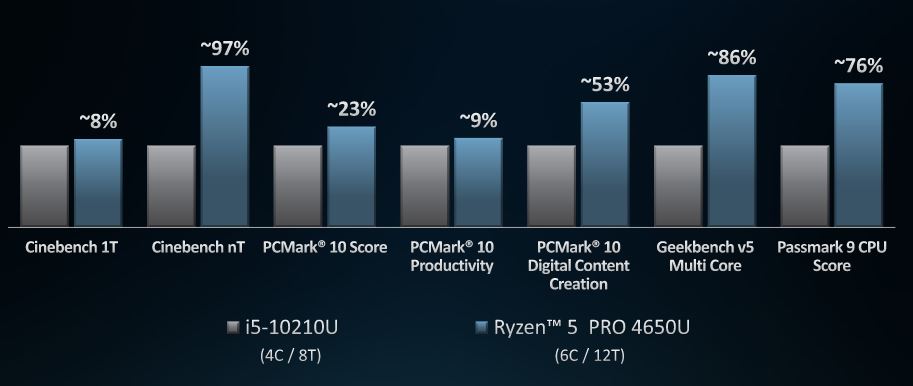
On the Geekbench 5 test, the Ryzen 5 Pro 4650U crushed the Core i5-10210U CPU with 86% faster performance. Similarly, the Cinebench nT test favored the AMD by 97% and on Passmark 9 there was a 76% gap in favor of Team Red. None of the tests AMD provided had the Core i5 on top.
AMD then put the Ryzen 5 against a Core i7-10510U (a 4 core/8 thread chip) and still came out on top, with a 32% performance advantage on the Geekbench 5 test and 36% on Passmark 9.
AMD Ryzen Pro 4000 vs. Ryzen Pro 3000
Let's take a look at how the new Ryzen Pro 4000 chips compare to the previous 3000-series processors.
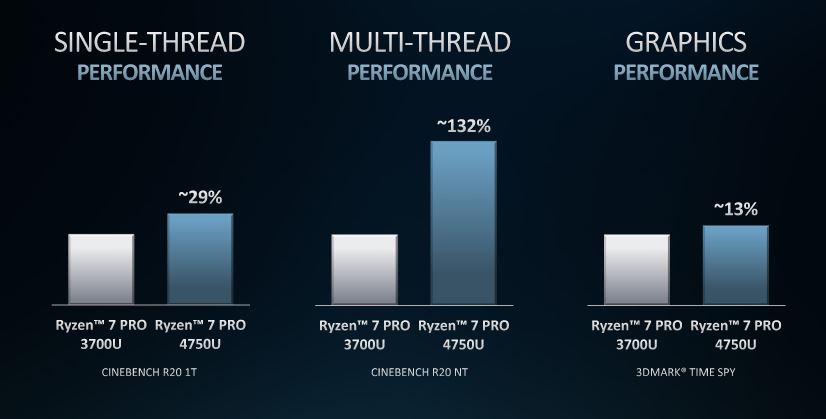
According to AMD, the Ryzen 7 Pro 4750U CPU delivers a whopping 120% faster multi-threaded performance than the Ryzen 7 Pro 3700 CPU in the Cinebench R20 NT performance test. Single-threaded performance (27%) and graphics performance (13%) increases are also notable but not quite as dramatic.
Synthetic benchmarks only tell half the story. In real-world tests provided by AMD, the Ryzen 7 Pro 4750 provides 77% faster speeds than its predecessor when running Microsoft Excel. Microsoft Edge runs 39% faster, Powerpoint gets a 27% speed boost and there is a 19% jump year-over-year when you're writing essays in Word.
AMD Ryzen Pro enterprise features
Intel's vPro chips come loaded with features meant to secure notebooks and help IT admins deploy and manage fleets of laptops. Now AMD wants businesses to know it has its own solutions.
AMD is focusing on three areas with its Ryzen Pro chips. The first is security, which is achieved via a "multi-layered" approach that includes a modern architecture, memory encryption and tools from third-party laptop vendors.
The next is manageability, with AMD promising simplified deployment and management of laptops across an entire workforce. It gets help from Microsoft Endpoint Manager.
And lastly, there is what AMD calls "Business Ready," which essentially promises long-term reliability and support.
AMD Ryzen Pro 4000 power efficiency
More power is only useful if it doesn't eat into the efficiency of a machine. With the Ryzen Pro 4000 chips, AMD is promising huge improvements to battery life for business machines. The company says notebooks can last up to 20 hours on a charge with the Ryzen 7 CPU.
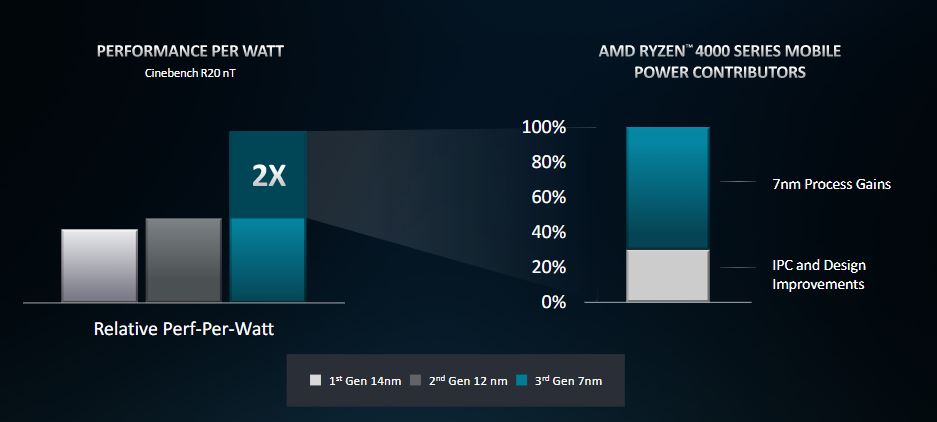
It achieves those long runtimes with 2x more performance-per-watt along with some smart new features, like better idle detection and a reduced energy penalty when you switch power states.
We'll get a much better idea of how these chips affect real-world battery life once we get review units running Ryzen Pro 4000 CPUs.
Business laptops with Ryzen Pro 4000
AMD didn't specify exactly how many business systems would run on its Ryzen Pro 4000 chips this year, but it did name-drop a half-dozen models from Lenovo and HP.
Of the major business laptop brands, Lenovo is taking the biggest jump with AMD by offering five new laptop models. Those include the ThinkPad T14, ThinkPad T14s, ThinkPad X13 and ThinkPad L14 and L15.
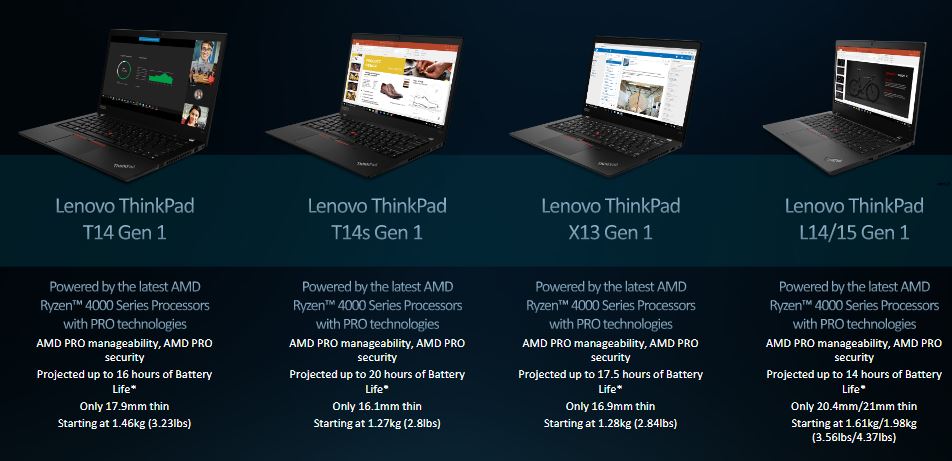
As previously reported, HP is releasing the Ryzen 4000-powered ProBook x360 435 G7 and ProBook 445 G7 and 455 G7 notebooks.
We'll provide full specs and features for these laptops when they become available.
Outlook
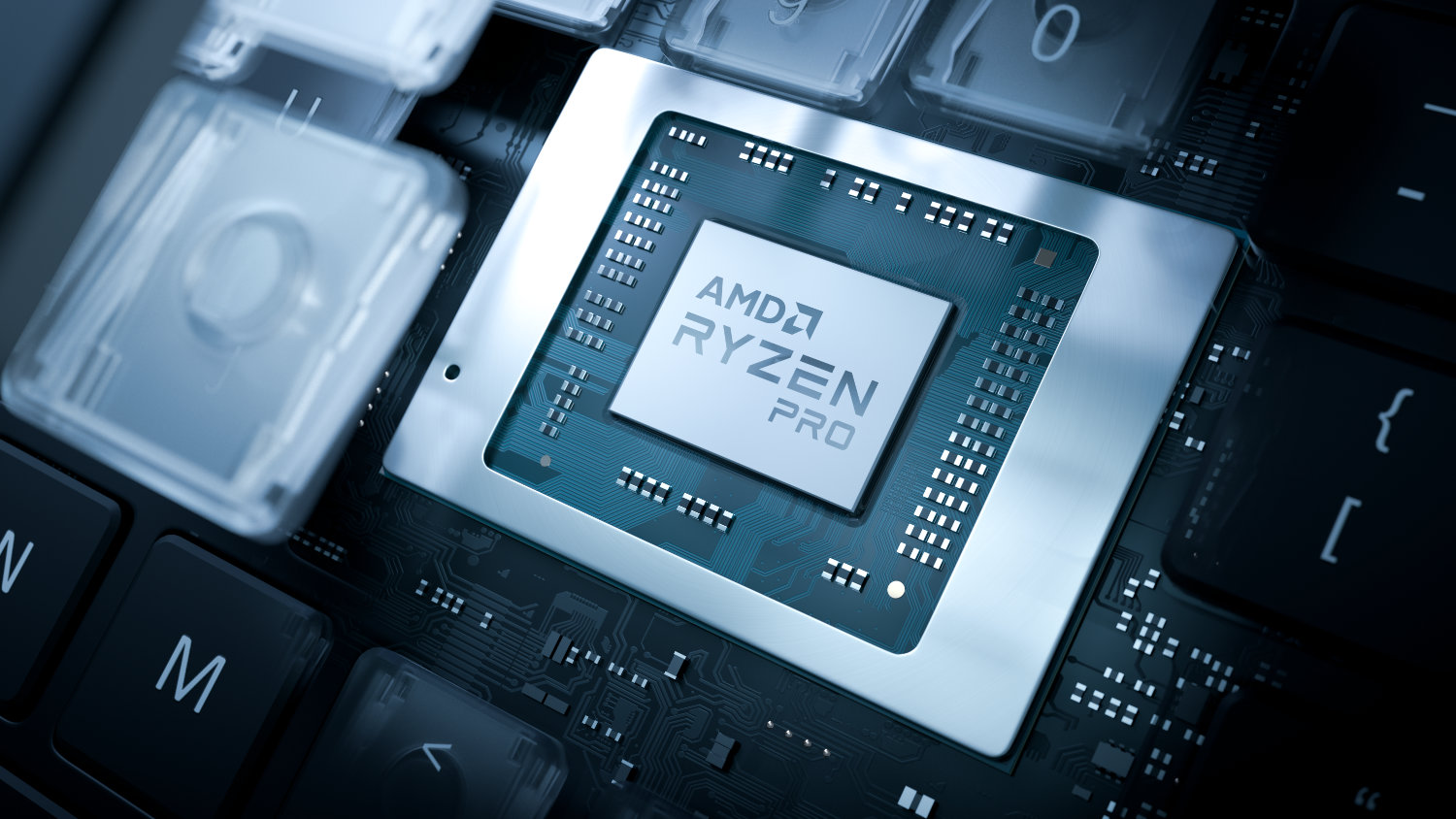
We'll need to get our hands on a laptop running AMD's new Ryzen Pro 4000 processors before we can make an definitive conclusions. But our expectations are through the roof based on what AMD is showing us.
If these performance metrics hold up in our benchmarks, and laptops with Ryzen Pro an actually last 20 hours on a charge (we'd take 15 hours), then Intel could be in for a long year.
Phillip Tracy is the assistant managing editor at Laptop Mag where he reviews laptops, phones and other gadgets while covering the latest industry news. After graduating with a journalism degree from the University of Texas at Austin, Phillip became a tech reporter at the Daily Dot. There, he wrote reviews for a range of gadgets and covered everything from social media trends to cybersecurity. Prior to that, he wrote for RCR Wireless News covering 5G and IoT. When he's not tinkering with devices, you can find Phillip playing video games, reading, traveling or watching soccer.

